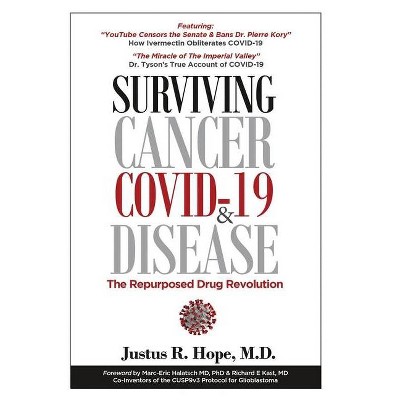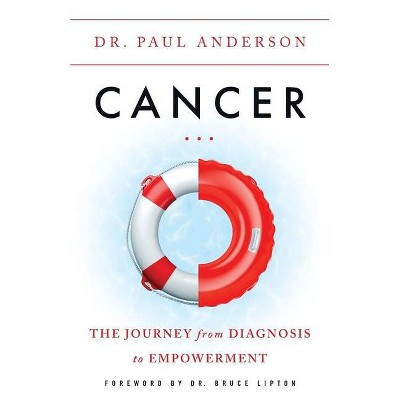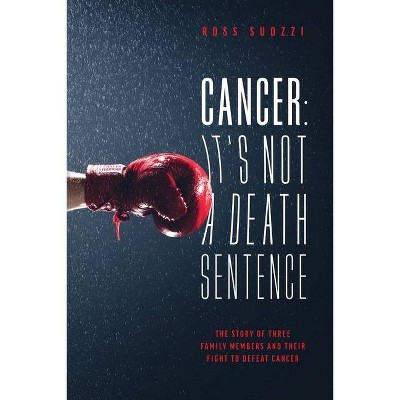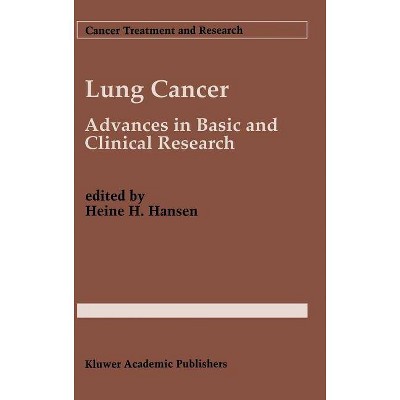Cancer Disparities - by American Cancer Society & Ronit Elk & Hope Landrine (Paperback)
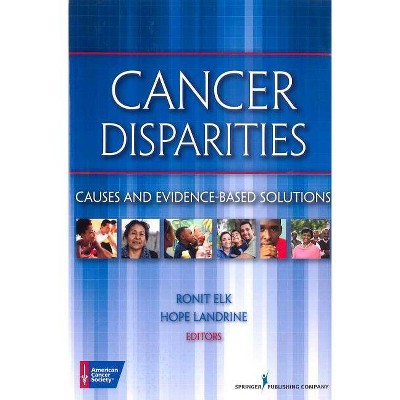
Similar Products
Products of same category from the store
AllProduct info
<p/><br></br><p><b> About the Book </b></p></br></br>"<P>Cancer is not randomly distributed in the United States. Its incidence varies by race, ethnicity, socioeconomic status, and other geographic and demographic factors. This volume, co-published with the American Cancer Society, is the first to examine the biological, racial, and socioeconomic factors that influence cancer incidence and survival. In addition, it presents 15 previously unpublished, evidence-based interventions to reduce and eliminate cancer disparities. <P>The book explains the nature, scope, and causes of cancer disparities across different populations and then presents unique programs proven to reduce such inequalities in the areas of cancer prevention, screening and early detection, treatment, and survivorship. They represent a variety of cancers, populations, and communities across the U.S. Descriptions of each intervention include tests of effectiveness and are written in sufficient detail for readers to replicate them within their own communities. Key Features: <P> Offers an in-depth look at the latest research behind cancer disparities Written by highly respected and published cancer researchers Includes 15 never-before published, evidence-based interventions that readers can replicate Discusses breast, colorectal, cervical, and other pernicious cancers Includes interventions for African-American, Hispanic, Native American, and other populations "<p/><br></br><p><b> Book Synopsis </b></p></br></br><p>The volume sheds new light on reducing disparities by complementing currently available monographs, through the provision of solutions that are not only theoretically innovative but also empirically effective. Indeed, <i>Cancer Disparities: Causes and Evidence-Based Solutions</i> admirably achieves two key objectives that are crucial for advances in the field: (a) providing an up-to-date overview of cancer-related disparities and (b) describing evidence-based interventional approaches to close the cancer-related disparities gap. The implicit promise is that these approaches will enable public health practitioners, cancer control workers, and community members to use or adapt them in their own communities. This volume is essential to help make that promise a reality.--<b>PsycCRITIQUES</b></p> <p>Cancer is not randomly distributed in the United States. Its incidence varies by race, ethnicity, socioeconomic status, and other geographic and demographic factors. This volume, co-published with the American Cancer Society, is the first to examine the biological, racial, and socioeconomic factors that influence cancer incidence and survival. In addition, it presents 15 previously unpublished, evidence-based interventions to reduce and eliminate cancer disparities.</p> <p>The book explains the nature, scope, and causes of cancer disparities across different populations and then presents unique programs proven to reduce such inequalities in the areas of cancer prevention, screening and early detection, treatment, and survivorship. They represent a variety of cancers, populations, and communities across the U.S. Descriptions of each intervention include tests of effectiveness and are written in sufficient detail for readers to replicate them within their own communities.</p> <b>Key Features: </b> <p><ul> <li>Offers an in-depth look at the latest research behind cancer disparities <li>Written by highly respected and published cancer researchers <li>Includes 15 never-before published, evidence-based interventions that readers can replicate <li>Discusses breast, colorectal, cervical, and other pernicious cancers <li>Includes interventions for African-American, Hispanic, Native American, and other populations </ul><p/><br></br><p><b> From the Back Cover </b></p></br></br>"<P>""The volume sheds new light on reducing disparities by complementing currently available monographs, through the provision of solutions that are not only theoretically innovative but also empirically effective. Indeed, "Cancer Disparities: Causes and Evidence-Based Solutions" admirably achieves two key objectives that are crucial for advances in the field: (a) providing an up-to-date overview of cancer-related disparities and (b) describing evidence-based interventional approaches to close the cancer-related disparities gap. The implicit promise is that these approaches will enable public health practitioners, cancer control workers, and community members to use or adapt them in their own communities. This volume is essential to help make that promise a reality.""--PsycCRITIQUES <P>Cancer is not randomly distributed in the United States. Its incidence varies by race, ethnicity, socioeconomic status, and other geographic and demographic factors. This volume, co-published with the American Cancer Society, is the first to examine the biological, racial, and socioeconomic factors that influence cancer incidence and survival. In addition, it presents 15 previously unpublished, evidence-based interventions to reduce and eliminate cancer disparities. <P>The book explains the nature, scope, and causes of cancer disparities across different populations and then presents unique programs proven to reduce such inequalities in the areas of cancer prevention, screening and early detection, treatment, and survivorship. They represent a variety of cancers, populations, and communities across the U.S. Descriptions of each intervention include tests of effectiveness and are written in sufficient detail for readers to replicate them within their own communities. Key Features: <P> Offers an in-depth look at the latest research behind cancer disparities Written by highly respected and published cancer researchers Includes 15 never-before published, evidence-based interventions that readers can replicate Discusses breast, colorectal, cervical, and other pernicious cancers Includes interventions for African-American, Hispanic, Native American, and other populations "<p/><br></br><p><b> About the Author </b></p></br></br><b>Ronit Elk, PhD</b> is the former Director of Cancer Control and Prevention Research and Director of the Priority Program in Health Disparities of the Extramural Research Grants at the American Cancer Society. Dr. Elk is the author, with Dr. Monica Morrow, of <i>Breast Cancer for Dummies</i>. She is also the author of two children's books, <i>A Surprise at Dancing Fields</i> and <i>It's the Elephant's Picnic</i>. <b>Hope Landrine, PhD</b> is Director of the Center for Health Disparities Research and Professor of Psychology at East Carolina University. She has published numerous articles and books on the topic, and received six national awards for her research, including the American Psychological Association (APA) Dalmas Taylor Award for Lifetime, Distinguished Contributions to Research on Ethnic Minorities, and Fellow status in APA Divisions 35 (Women), 9 (Social Issues), 38 (Health), and 45 (Ethnic Minorities) for outstanding contributions to research. She is the former Director of Multicultural Health Behavior Research at the American Cancer Society, and continues to collaborate with American Cancer Society and National Cancer Institute scholars on studies of Black-White cancer disparities.
Price History
Price Archive shows prices from various stores, lets you see history and find the cheapest. There is no actual sale on the website. For all support, inquiry and suggestion messagescommunication@pricearchive.us



